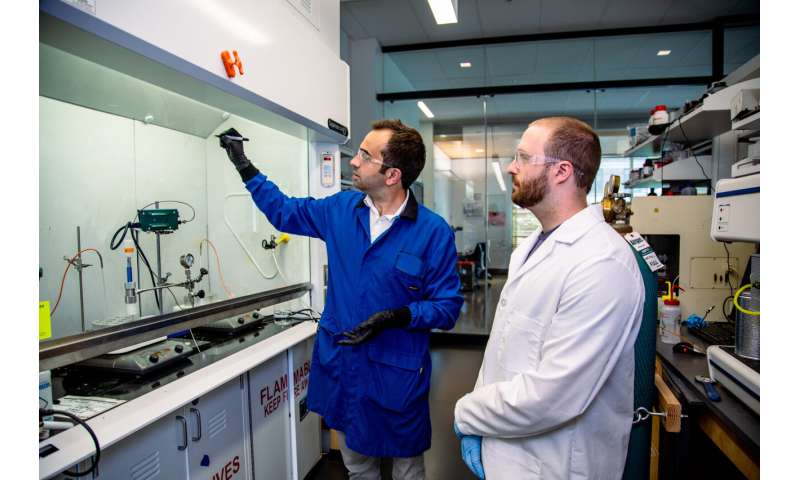Oregon State University researchers working on process for upcycling waste PVC into adhesive

Researchers in the Oregon State University College of Engineering have received funding to develop a process for converting waste polyvinyl chloride, commonly referred to as PVC, into a wax that can be used as an adhesive for flooring and other products.
The work is important because the durable plastic is ubiquitous in the construction sector in the form of pipes, gutters, conduits, flooring and other building components.
PVC, which has been produced industrially for nearly a century, has a big presence in health care as well, including surgical tubing, IV fluid bags and oxygen masks, and it's found in consumer products ranging from teething rings to pet toys.
It is also a challenge to recycle, OSU's Kostas Goulas said, and does not lend itself well to other forms of disposal because of the harmful dioxins it can release.
"The major industrial pain point we are trying to address is that the current methods to recycle PVC waste are too expensive or inappropriate for many PVC waste streams," said Goulas, assistant professor of chemical engineering. "For example, recycling vinyl flooring waste is difficult and costly. We think that our method is significantly improved over previous attempts to recycle or upcycle PVC."
Goulas and students Scott Svadlenak, Makayla Vu and Sophie Wojcik are working on a hydrothermal treatment and hydrogenation process that can deal with contaminated waste while sequestering chlorine as salt and carbon as a valuable hydrocarbon wax.
Hydrothermal refers to a chemical reaction taking place in an aqueous solution in a high-pressure, high-temperature environment, and hydrogenation is a reaction that uses catalysts and molecular hydrogen to saturate an organic compound.
"Our method works by removing the chlorine from the waste PVC polymer and hydrogenating the intermediate unsaturated polymer formed from the PVC to a hydrocarbon wax," Goulas said.
Sodium chloride, or rock salt, is among the raw materials used in making PVC, he added. Typically, chlorine is industrially produced from salt through electrolysis, and Goulas said the sodium chloride yielded from the wax production can be used for the synthesis of new PVC.
"We think that the wax can be used as a hot melt adhesive wax," Goulas said. "Compared to solvent-based adhesives, hot melt adhesives have the advantage of not containing potentially harmful volatile organic compounds. We think an adhesive that doesn't have VOCs is a big advantage in the flooring industry, where adhesive is extensively used. Working with the flooring industry also enables us to use a single value chain for both our raw materials and our products."
The research group is currently focusing on optimizing the yield of the catalytic process and the quality of the wax produced from different types of PVC waste, he said. The researchers are also exploring the technology as the basis for a startup company and are working with PVC building materials partners to better understand the partners' needs and to try to secure a steady flow of waste.
The Vinyl Institute has so far provided a one-year grant of $100,000, with the potential of an additional $200,000 over two more years, Goulas said.
"We are grateful to the Vinyl Institute," he said. "They have been very supportive and helpful, not just with funding, but also with partnership and advice."
VentureWell, a nonprofit that assists university faculty and students in the creation of socially beneficial businesses, has awarded the Goulas lab a $25,000 grant for the PVC-to-adhesive project.
Provided by Oregon State University